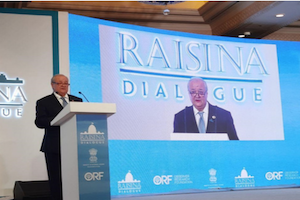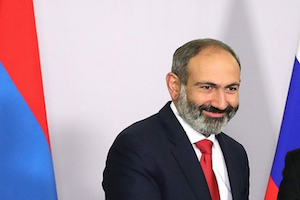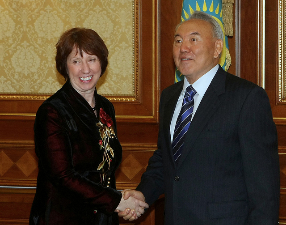Uzbekistan's Significance in India's Central Asia Policy
By Niranjan Marjani
February 27, 2020, the CACI Analyst
Uzbekistan’s Foreign Minister Abdulaziz Kamilov visited India on January 14-15, 2020, where he met with his Indian counterpart Subrahmanyam Jaishankar and addressed the Raisina Dialogue, an international conference organized by India in which several foreign delegates share their views on global issues. This was one of several recent engagements between India and Uzbekistan. Uzbekistan has emerged as the Central Asian country with which India has not only accelerated but also diversified engagements in the past few years. This is evident from the increasing number of bilateral visits between the two countries as well as cooperation in an increasingly diverse number of areas.

Is Armenia's Foreign Policy Changing?
By Natalia Konarzewska
September 25, 2018, the CACI Analyst
August 17 marked the first hundred days in office for Nikol Pashinyan’s government in Armenia, which assumed office after the mass social protests erupting in April and May this year. The leaders of the protest movement underlined that they campaigned for domestic reform, yet the ensuing transition of power followed by a crackdown on corruption and a legal purge among the Armenian political elite has already reverberated in Armenia-Russia relations. Moreover, the new government’s stiff approach towards resolution of the Nagorno-Karabakh conflict has brought renewed tension in its relations with Azerbaijan.

The Southern Energy Corridor: A Strategic Priority for the U.S.?
By Mamuka Tsereteli (05/27/2015 issue of the CACI Analyst)
The South Caucasus enjoyed significant political support from U.S. policy makers since the mid-1990s, when the region was seen as an integral part of the proactive U.S. security and energy policy towards Europe. Those policies were successful, resulting in several pipeline projects connecting Caspian resources to European and world markets. But a direct natural gas connection between Caspian fields and Europe remains to be developed. It is in the common interest of the U.S., EU, producer and transit countries to overcome multiple challenges and make this connection work. While the debate currently includes efforts to build a false connection between Caspian producers and exemptions from the Iran sanctions, Washington needs a serious and strategic discussion on America’s role in Caspian energy.

Election Year in the Eurasian Union and the EU's External Action Policies
By Gaël Chataignère (05/27/2015 issue of the CACI Analyst)
EU policies toward the two junior members of the Eurasian Union are an indication of the EU’s struggle to balance its normative, geo-economic, and political interests in the former Soviet space. This April, Nursultan Nazarbayev secured a fifth term in office with a full 97.7 percent of the vote, prompting only a mild response from the EU. The European External Action Service simply reiterated the conclusions of the OSCE observation mission, and the importance of the EU’s partnership with Kazakhstan. Meanwhile, despite an ongoing diplomatic thaw, Belarus remains subjected to a comprehensive set of EU sanctions. This seeming paradox questions the consistency and priorities of the EU, just a few months before Belarus holds its own presidential election.

Reaffirming Balance: Kazakhstan's Expanded Foreign Policy Strategy and its Response
By S. Frederick Starr (10/29/2014 issue of the CACI Analyst)
Kazakhstan may have not had a choice as to whether or not to join the Customs Union, given geographical realities and President Nazarbayev’s long advocacy of that course. Now that it is joining, however, Kazakhstan has advanced a new strategy that seeks to rescue and preserve its “balanced” or “multi-vectored” foreign policy and to extend it beyond geopolitics into economics and security. This requires the full engagement of the EU and U.S. The EU’s October 2014, Enhanced Partnership and Cooperation Agreement with Kazakhstan advances this goal in the economic realm, but does not touch security. The U.S. has yet to take make similar advances in its economic or security relations with Kazakhstan.






